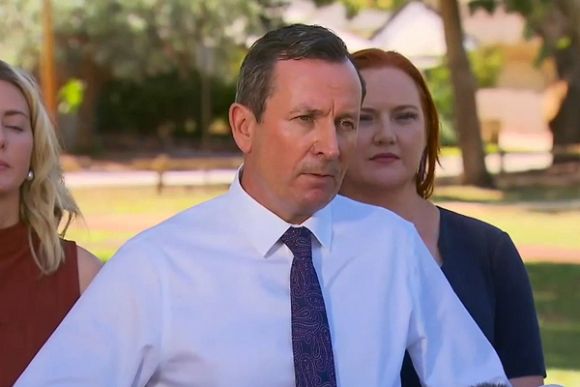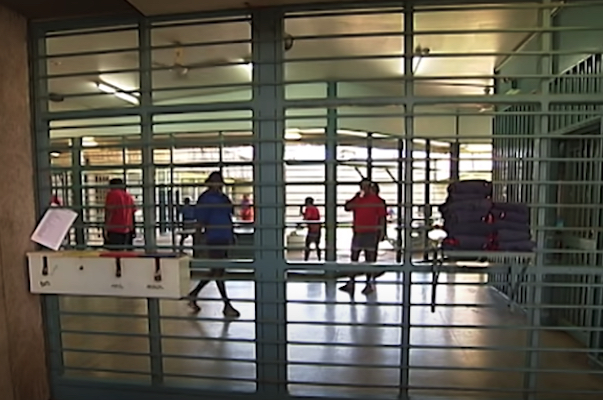Our governments aren't showing enough political will to end the homelessness crisis in Australia, writes Connie Georgatos.
THE CAMPAIGNS TO END homelessness must be relentless. It is up to us to make governments respond to the will of the people. In December 2014, the Federal Government defunded Homelessness Australia, the peak advocacy body. Homelessness Australia operates on a voluntary basis – credit to them – and has not employed personnel.
Governments have a bent to smash both systemic and community advocacy. We must stand in the way and ensure the multitude of voices are heard.
As a youth and homelessness advocate, we must be relentless in speaking out. We need to understand our youth are at higher risk of suicide than anyone else. The leading cause of death for 15-to-24-year-olds is suicide. In 2019, 461 youths died of suicide. The trend continues — in fact, it is worsening. Half the homeless are youths aged 25 years or less.
The tip of the iceberg is the street homeless, who are these days termed “rough sleepers”. According to the Australian Bureau of Statistics (ABS), they comprise 7% of the homeless and according to some researchers, up to 15%. A quarter of the homeless is aged 18 years and less. There are also 16,000 children in some form of homelessness aged 12 years and less. Forty per cent of the homeless are aged 24 years and less. Homelessness is increasing.
Addressing homelessness in Australia must not be about metrics, data analytics, research nor about funding homelessness support services. It is about “priorities” and political will. A case in point is during last year’s initial COVID-19 lockdowns and state and territory border closures, four Australian states brought 40,000 souls off the streets and out of other unstable precarious circumstances, while Western Australia only supported 20 street homeless individuals for only one month during the lockdown.
The 40,000 who were supported into hotel accommodations prove where there is a will, there is a way. The Western Australian Government proved the homeless are not an inherent priority.
One year later, a third of the 40,000 rough sleepers who were interim accommodated during the COVID-19 pandemic have been supported into permanent housing or lodgings. It took a pandemic to house 13,000 people who, without the pandemic, the majority would still be homeless. This goes to the points of priorities and political will.
We need a bigger dose of political will.
Obviously, there needs to be a supply of public and social housing, but once again this only takes political will.
Finland found political will to end rough sleeping in Helsinki and in reducing homelessness throughout Finland by more than 40% during the last several years. Great Britain, too, is at long last prioritising the homeless. Alas, not Australia.
Great Britain had long accepted visible homelessness, with makeshift shelters throughout its cities and towns. But the fear the COVID-19 coronavirus strains could be super-spread through rough sleepers, Great Britain moved more than 15,000 rough sleepers off the streets during last year’s lockdowns. Despite the logistics, it was done fast and effectively and once again, this goes to the point that where there is a will.
I work with Perth’s houseless and street homeless. My eyes have seen their harrow. I am shy of 21 years of life, still a youth, but have spent the last decade understanding the homeless who are our poorest citizens. My parents both work alongside the homeless, the seriously at-risk and have supported many people from street homelessness to a home, education and employment.
For two years, I volunteered with an eviction prevention and tenancy stabilisation service. My mother, Jennifer Kaeshagen, ran the First Nations Homelessness Project. Thereafter, I joined my father, Gerry Georgatos, as a Support Admin and thereafter as a Programs Manager at the National Suicide Prevention and Trauma Recovery Project (NSPTRP).
I have seen with my own eyes homeless toddlers, children and this at first shocked me but always breaks my heart. I have seen with my own eyes young and older homeless women after being bashed and raped. The end of the eviction ban in my home state of Western Australia means more toddlers and children will finish up rough sleeping. The end of the eviction ban means many more women, young and older, will finish up homeless, many of them bashed and raped.
The political will should be one that maintains eviction bans, invests in tenancy stabilisation, in intense psychosocial outreach and psychosocial supports in general. It should increase welfare payments, bringing about a universal wage, build 150,000 public and social homes and end all forms of homelessness. These are the protections that will guide us to a civil and just society, to respect for one another.
I can write about the horror stories of life on the streets, life on the breadline, but surely the majority of Australians know them. Yes, the stories need to read or heard, but where we must focus on is in the holding of our governments to account, cornering them into action, into building the array of public and social housing in which we have lagged further behind with each year passing. All Australian governments – state, territory and commonwealth – must go from laggards to leaders, to visionaries, on public and social housing.
Connie Georgatos is a youth and homelessness advocate and a Project Manager with the National Suicide Prevention and Trauma Recovery Project.
Related Articles
- WA Government has betrayed its homeless
- It's time for governments to put the homeless first
- Australia must build 150,000 public rental homes and end all forms of homelessness
- Australia’s homeless — third highest rate and street homeless deaths increasing
- How the economy contributes to the homelessness problem
 This work is licensed under a Creative Commons Attribution-NonCommercial-NoDerivs 3.0 Australia License
This work is licensed under a Creative Commons Attribution-NonCommercial-NoDerivs 3.0 Australia License
Support independent journalism Subscribe to IA.













